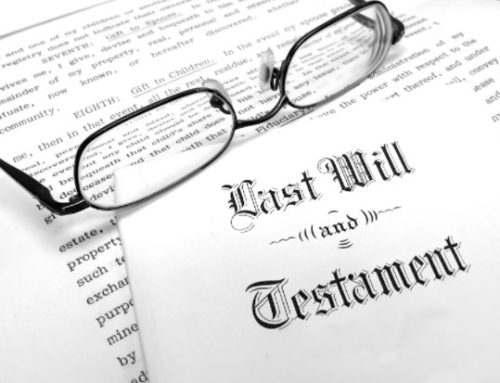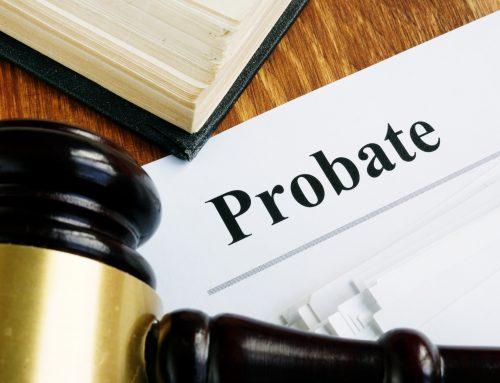In Indiana, probate can take anything from a few days to well over a year, depending on the complexity of the estate in question. In some cases, you don’t even have to worry about probate.
So, how long does probate take? The short answer is, it depends on several factors. In this article, we’ll cover all the bases. Contact Barnes Cadwell Law to learn more.
Is Probate Even Necessary?
In Indiana, some assets need not go through probate. These include:
- Items owned in joint tenancy (by two or more people)
- Community property with survivorship rights
- Life insurance and retirement accounts with beneficiary designations
- Payable- or transfer-on-death bank accounts
- Payable- or transfer-on-death brokerage accounts
- Property held in a living trust
Small estates consisting entirely of such assets and/or less than $50,000 in other assets you can settle in days using Summary Probate laws, or after a 5-day to 45-day waiting period using affidavit property claims.
How Complicated Is the Estate?
The more complicated the estate and the more assets involved, the longer probate will take. The primary goal is to ensure that living beneficiaries receive all the belongings of the deceased. However, the probate court and the executor overseeing the estate’s distribution must do several things before this can happen.
First, they must ensure the will is valid, then identify and evaluate the assets. Next, they must arrange to pay any outstanding debts and taxes. Finally, they must notify all beneficiaries. This can take a while. Speak to our Indiana probate lawyer today.
Where Does the Executor Live?
This process is usually handled by the executor, the personal representative of the deceased. This person may be a family member, friend, or attorney. If no attorney is already involved, it’s wise to hire one to assist in the probate process. The nearer the executor is to the probate attorney’s location, the better. Distance may further slow the probate process, since many probate documents require an original, inked signature.
Fortunately, with overnight mail, it’s possible to conquer this problem — but it’s still faster if attorney and executor are located near each other.
How Many Beneficiaries Are There? Do They Agree or Disagree?
The more beneficiaries involved, the slower the process. Simply notifying them all will take time. If they live a significant distance away, this will also slow the process as the many documents the court requires them to sign are sent back and forth.
Worse, one or more beneficiaries may disagree on anything that happens during the probate. They may also be unhappy about who gets what. They may go so far as to hire their own lawyers to watch over the probate process, which can result in a lengthy review and constant bickering over the executor’s actions.
Will There Be a Will Contest?
Some beneficiaries (or others who feel they should have been beneficiaries but were left out of the will) may initiate a legal proceeding called a will contest. They may try to invalidate the will based on one or more of the following arguments:
- Deceased failed to follow the proper legal formalities when signing the will.
- The will was written:
- based on fraudulent issues.
- under the undue influence of a specific beneficiary.
- under duress.
- The deceased did not have the mental capacity to write their own will.
These issues tend to require a long court trial to sort out.
What If There Is No Will?
If the decedent failed to leave a will, the probate court will handle the entire process itself, step by step. The court will appoint the executor and will follow Indiana state guidelines for determining the beneficiaries and how much each receives. No matter how simple the estate, it will take longer than normal to execute than if a will were available.
Is the Estate Taxable?
Although the state of Indiana currently has no estate or inheritance taxes, you may have to worry about Federal estate taxes if the estate has a value in excess of $11.18 million. The IRS must then issue a closing letter revealing the estate taxes due before the probate can close. This can take up to eight months.
There’s another sticking point: if the deceased owned property in D.C. or one of the 14 states that still levy estate taxes, this may slow the probate as the other state makes its assessment and estate tax demands.
How Long Does Probate Take? An Indiana Probate Lawyer Can Help Speed Up the Process
Probate doesn’t have to take long if the estate is small and uncomplicated. Even if it’s larger, as long as the executor does their job efficiently and the beneficiaries don’t fight over the will, expect the probate process to last only a few months. Sometimes the IRS or other taxing entities outside Indiana can lengthen that process. If someone contests the will, expect the probate to take over a year.
If you have difficulties obtaining a bequest or executing a will, you’ll need help from an experienced probate attorney specializing in probate matters. Contact Barnes Cadwell Law today.






